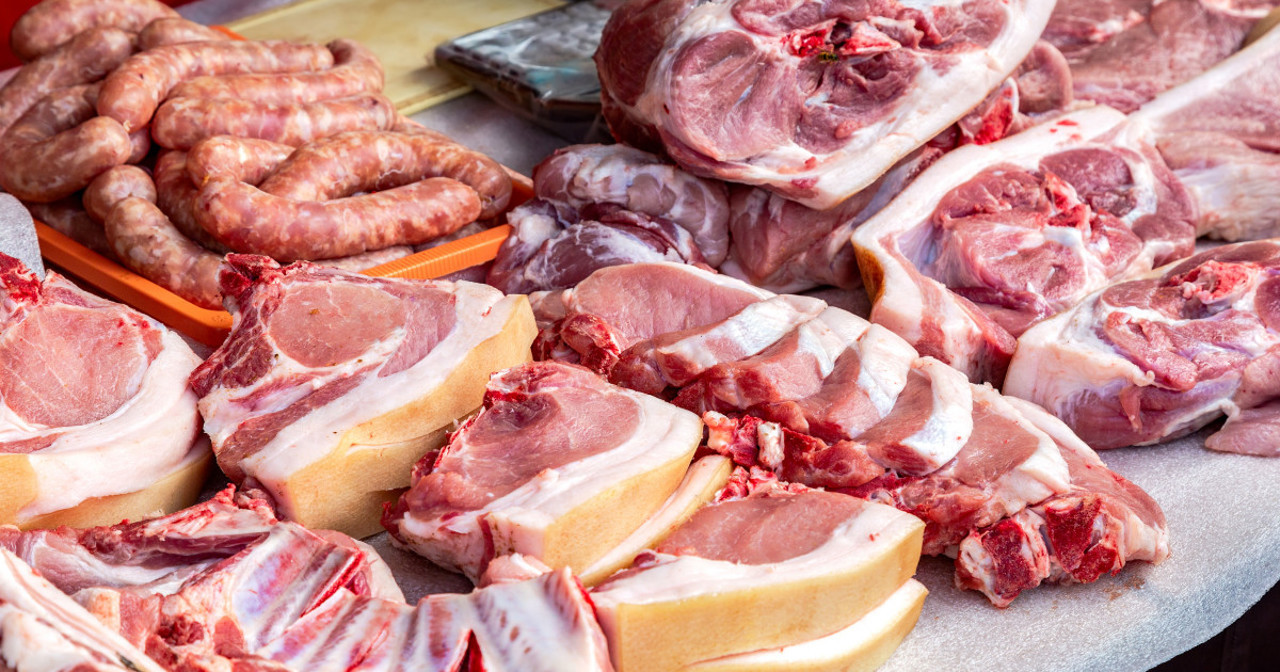Moldova's pork war: Producers vs. processors over prices

Amid growing discussions about a potential rise in pork prices, the Association of Pork Producers (APCP) and some meat processors are at loggerheads.
The APCP asserts there are sufficient quantities of pork on the market and accuses some industry voices of "manipulation" in an effort to secure import tax exemptions. Conversely, processors warn of a potential deficit and rising prices if temporary tax relief isn't granted.
The position of the Association of Pork Producers of the Republic of Moldova
In a comment to Teleradio-Moldova, Aliona Ionescu, a representative of the Association, stated that "processors are seeking the elimination of import duties on pork quotas."
These statements were made "amid recent declarations regarding a supposed inevitable increase in pork prices." The APCP asserts that there are sufficient quantities of pork in the Republic of Moldova, citing commercial blockages stemming from a lack of stable partnership between producers and processors.
"Even when the sector was impacted by the African Swine Fever, pork prices didn't rise, meaning there's no basis to increase prices for finished products," the APCP representative told Teleradio-Moldova.
"Processors simply have a strong desire for the elimination of import duties on pork quotas. However, this would create a huge hole in the budget. For 2025 alone and the subsequent months, if these taxes are eliminated, the state budget risks an average loss of approximately 150 million lei, based on a comparative analysis with last year's data for potentially imported products," the Association's representative added.
According to Ionescu, tax exemptions could adversely affect the entire value chain, and the APCP is calling for a transparency exercise to "clearly analyze the ratio between the raw material price and the final shelf price of processed products."
The Association argues that tax-exempt imports could harm the local sector.
What processors say
Meanwhile, Eugen Salcuțan, who administers a meat processing and sausage manufacturing enterprise, contends that the APCP's statements primarily represent small-scale producers. He adds that large processors and producers have expressed their desire for import tax exemptions during discussions to replenish stocks, as a deficit in these stocks could lead to price increases.
"It all stems from the idea that the finished product can become uncontrollably expensive due to raw material costs—and that always impacts consumers, whose purchasing power in our country is quite low," Salcuțan stated.
He explained that processors are not incentivized to raise prices, as sales decline when prices increase: "You can't sell a product if consumers can't afford to buy it."
Eugen Salcuțan stated that while there's speculation the industry aims to increase its profits through price hikes and import tax exemptions, the tax exemption was proposed solely as a temporary measure. This is intended to prevent affecting finished product prices and merely to cover shortages; once these shortages are addressed, the proposed measure can be discontinued.
"Currently, for instance, 11,000 tons of meat have disappeared from Moldova's economic circuit. Everything that was culled and buried due to swine fever is, in fact, a tragedy for the country's economy," he told us. "We are still compelled to supplement and import anatomical parts for processing." Salcuțan also noted that raw materials for meat specialties such as pork ears and various roulades have always been supplemented through imports.
"A meat deficit leads to increased costs," Salcuțan asserted, adding that these could escalate in the coming months as "farmers are compensating for the loss of local pigs by importing live pigs for slaughter" from other countries.
According to him, the risk is exacerbated with the onset of the warm season. "The danger looms in June and July, during the peak summer heat. As we know, trucks are unable to circulate during the day when temperatures exceed 30 degrees Celsius, as live animals suffocate in high heat."
The situation under the Competition Council's scrutiny
The Competition Council informed Teleradio-Moldova that the issue remains under the institution's purview.
Asked if any complaints had been filed, the institution's spokesperson stated that none had been received, but assured that "The Competition Council will examine any submission."
Processors in the livestock sector had also stated around the Easter holidays that there was a risk of a pork deficit at domestic farms due to the African Swine Fever outbreaks detected in the country.
These statements were made at a March meeting with Prime Minister Dorin Recean, following the detection of two major African Swine Fever outbreaks: one at a farm in Roșcani village, Anenii Noi district, where 65,000 pigs were culled and buried, and another in Cimișeni, Criuleni district, where over 1,000 pigs were sacrificed.
Concurrently, the Minister of Agriculture, Ludmila Catlabuga, stated at the time that there was sufficient raw material on the market, and meat prices would most likely not increase. Valentin Roșca, Head of the Livestock Sector Policy Directorate at the Ministry of Agriculture, stated that "we have a rather tense situation, but it is not yet a panic situation." According to the official, authorities have held discussions with the relevant association to ascertain pork quantities.
Translation by Iurie Tataru





